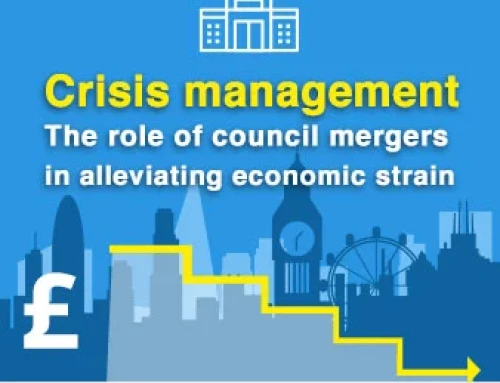How can investment in IT help local councils improve the road quality?
Paving a smooth roadway for better economy and happy citizens!
Roads are the basic building blocks of development. The local roads and highways play a key role in connecting the cities, counties, shires, rural areas, provinces, and countries. Apart from economic progress, roads are important for the people to commute. Local authorities must maintain the roads and highways are in a standard condition. Failing to do so might result in a slowed economy, mishaps, and increased trouble for the citizens. This follows the expensive repairs and long-term recovery process to improve the roads. And, it is not at all desirable!
Recently, the UK transport and highway network has been affected. The councils have been unsuccessful in maintaining the roads. The reason for the same is lack of spending. There has been a significant gap in funding resulting in a huge repairs backlog. To meet the needs of social and child care, the councils have shifted their spending and reduced the total expense on roads and highways maintenance. Road-related problems including large potholes, traffic congestion, accidents, capacity congestion, unraveled edges and uneven patches are on a constant rise. The situation, if not controlled, can get worse.
How bad is the current scenario?
The figures will put more light on the present situation. The spending on transport and highways maintenance has fallen by nearly 38% between 2010/11 and 2016/17. As per the ALARM (Annual Local Authority Road Maintenance Survey) 2017 survey, to cover the current backlog of the pothole and local road repairs, it would take more than 10 years and would need a funding of atleast £9.5 billion. Wonder, if the wait would ever end? Well, the local authorities need to restructure their working and realign the budget spending. They must act before it becomes impossible to recover the backlog.
According to the Cycling Charity report, £43m has been spent by the councils over the last five years on compensation claims and legal fees. That’s not a small amount. Above the financial loss, the number of deaths and injuries worsen the state of affairs. The councils need to understand the severity of the situation. They cannot afford things going wrong further. It is necessary to fix the problems and maintain the existing roads than beginning any new development.
What is the impact on the citizens and economy?
In a recent survey of 1208 businesses, 68% of them were not happy with the current condition of the local roads in the UK. In fact, they considered the roads less reliable as compared to 5 years ago. The consequences are causing a big harm to the economy as well. 52% of these businesses experienced an increase in direct travel costs. 39% of the businesses were disappointed with the current situation of the UK rail network. Also, only one in seven drivers stated that the roads were maintained as per the standards as per a January poll by AA. The negligence is having a serious impact on the economy and citizen satisfaction.
In the last 5 years, almost 670 cyclists and 30,893 drivers made successful claims due to the worsened roads. Traffic is increasing day-by-day. Compared to the two million cars on the road after World War II, now there are around 31 million cars. Thus, there is a pressure on the councils to maintain roads for the citizens to commute smoothly without delays, potholes and congestion.
What steps should councils take to make things better?
Transport secretary Chris Grayling declared around £100m extra cash for the councils to repair the roads and recover the damage caused by the bad weather this winter. Though it might not provide a significant help, it is a relief somehow. Atleast to combat the damage caused by the infamous Storm Emma, the Beast from the East and the heavy rains, the extra funding will be helpful. Apart from this, the local authorities need to design the vital ‘digital’ strategy. It is recommended to use a bespoke highway maintenance software solution that facilitates easy reporting of potholes, allows smooth field service coordination and helps the councils save on extra costs.
1. Make it easy to report problems
The councils need to give up on old methods of searching manually and repairing the potholes. Take the help of native application through which citizens can send information in the form of text, notes, pictures of pothole or damage, exact location and related details from anywhere as and when they spot the issue. It will help the supervisors to analyse the situation. They can send the right technicians to repair it. Besides that, the actions will be instant.
2. Ensure optimal resource utilization
It is crucial for the local authorities that their field staff works in the effective manner. A service scheduling highway maintenance software reduces the manual efforts and inaccuracies. The platform automates job scheduling for the council workers. It helps to achieve service level agreement constraints. The back-office council executives gain a real-time visibility into field operations.
3. Empower mobile field workers
Mobile Worker application assists the field workers on-the-go in a way that they can focus on their tasks rather than doing administrative work. The application plans the best route for the field staff to visit all the affected areas and fix the problem. It also works in offline mode. The data is immediately synchronised with the service operations. Field workers can get their schedule, complete task details and carry on their work resulting in more jobs in a day, fast solution, and reduced fuel costs.
4. Explore the data
One of the best aspects of using highway maintenance software is data collection. Local authorities can analyze the collected data and take a proactive approach. This will help them avoid the problems before they occur and minimizethe loss. The centralised data management also enables a paperless administration.
Drive on the ‘Tech’ Path!
Technology will help the councils shift from a reactive to a proactive approach. Rather than taking action after the problem transpires, strive to maintain the roads. A dedicated highway maintenance software is more than necessary to make the current situation better. Maintaining such a huge network of roads and highways is not an easy task. But, the councils cannot compromise on the quality of the roads. That’s why; the councils should consider the use of cost-effective technology in improving and maintaining the roads. Seek advice from our experts involved in the transforming the public sector. Feel free to request a non-obligatory demo with us!





